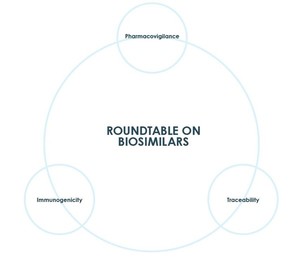Palivizumab biosimilar successfully produced in plants
Biotechnology company iBio, self-professed leader in the plant-made pharmaceutical field, announced on 10 April 2012 that it had successfully used its iBioLaunch technology to produce biosimilar palivizumab in non-transgenic green plants.
This is the second monoclonal antibody that the company has successfully produced. Back in October 2011 the company announced the successful use of its technology to produce rituximab.
Related article
Rituximab biosimilar successfully produced in plants
Source: iBio
India’s Avesthagen to launch its first biosimilar soon
In a bid to enter the lucrative biosimilars market India-based Avesthagen are aiming to launch their first biosimilar–a version of Amgen’s blockbuster anaemia drug Aranesp (darbepoetin alfa)–by early 2013.
The company plans to start 14-month clinical trials in the next few months and aims to commercialise the biosimilar by early 2013. The only other darbepoetin alfa available in India was launched in 2010 by Dr Reddy’s Laboratories under the name Cresp.
Source: Biospectrum Asia
Fake bevacizumab once again found in US
Reuters reported on 5 April 2012 that another fake batch of Roche’s cancer drug Avastin (bevacizumab) has been found in the US by FDA. The new batch was apparently bought in Turkey and shipped through British wholesalers Richard’s Pharma and River East Supplies before being exported to the US.
The UK Medicines and Healthcare products Regulatory Agency said there was no evidence to suggest that any of the counterfeit products had reached patients in Britain.
Fake bevacizumab in the US was first reported in February 2012, with the source traced to the Middle East via Europe.
Source: Reuters
Xencor receives milestone payment from Boehringer Ingelheim
Biotechnology firm Xencor announced on 4 April 2012 that it had received a milestone payment under a technology licence agreement with Boehringer Ingelheim.
The payment was triggered by a regulatory submission to begin phase 1 clinical trials of a novel monoclonal antibody that was optimised using Xencor’s XmAb antibody engineering technology. This is the second XmAb candidate entering human clinical trials under the agreement with Boehringer Ingelheim. The amount of the milestone payment and the oncology drug target were not disclosed.
Source: Xencor
Teva sues Synthon over generic Copaxone
On 3 April 2012, Teva filed a lawsuit in the US asserting that Synthon’s filing of its Abbreviated New Drug Application (ANDA) infringes certain patents on Teva’s multiple sclerosis treatment, Copaxone (glatiramer acetate).
Synthon filed its ANDA for generic glatiramer acetate with FDA on 13 December 2011. Momenta Pharmaceuticals, Mylan and Sandoz have also filed ANDAs for generic versions of Copaxone.
Related articles
Teva continues its fight to prevent generic glatiramer acetate
Teva again files citizen petition against generic Copaxone
Teva brings another action against Mylan
Source: Synthon








 0
0










Post your comment